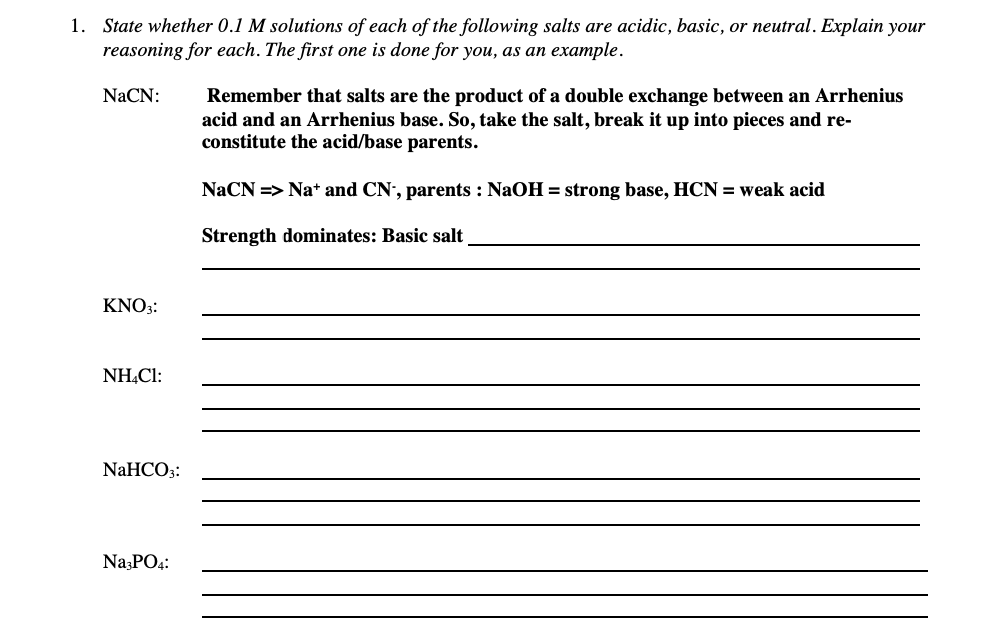1. State whether 0.1 M solutions of each of the following salts are acidic, basic, or neutral. Explain your reasoning for each. The first one is done for you, as an example. NaCN: Remember that salts are the product of a double exchange between an Arrhenius acid and an Arrhenius base. So, take the salt, break it up into pieces and re- constitute the acid/base parents. NaCN => Na* and CN', parents : NaOH = strong base, HCN = weak acid Strength dominates: Basic salt KNO3: NH.CI: NAHCO3:
Ionic Equilibrium
Chemical equilibrium and ionic equilibrium are two major concepts in chemistry. Ionic equilibrium deals with the equilibrium involved in an ionization process while chemical equilibrium deals with the equilibrium during a chemical change. Ionic equilibrium is established between the ions and unionized species in a system. Understanding the concept of ionic equilibrium is very important to answer the questions related to certain chemical reactions in chemistry.
Arrhenius Acid
Arrhenius acid act as a good electrolyte as it dissociates to its respective ions in the aqueous solutions. Keeping it similar to the general acid properties, Arrhenius acid also neutralizes bases and turns litmus paper into red.
Bronsted Lowry Base In Inorganic Chemistry
Bronsted-Lowry base in inorganic chemistry is any chemical substance that can accept a proton from the other chemical substance it is reacting with.

Trending now
This is a popular solution!
Step by step
Solved in 3 steps









